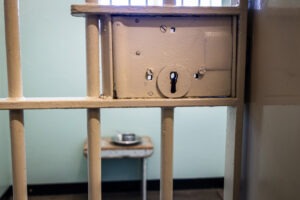November 22, 2016; NPR
As cited in a recent episode of NPR’s All Things Considered, “The State Department says there have been about a dozen cases of refugees being arrested or deported for some kind of terror-related activity.” Notably, this dozen comes out of “roughly 800,000 refugees admitted over the last 15 years.” Indeed, Shelley Callahan, executive director of the nonprofit Mohawk Valley Resource Center for Refugees, told NPR that she is “watching for warning signs” resulting from Donald Trump’s continued casting of all Muslim refugees as “a danger…importing terror and crime.” Her concerns are shared with many asylum advocates, protestors, and asylum-seekers themselves as the world witnesses a growing number of violent, senseless attacks both abroad and on U.S. soil.
As we search for ways to humanely resolve this emergency, some may agree with Callahan that aspects of what is happening may be “reflective of the very sad climate in this country with regards to politics at the moment and rhetoric.” In truth, these challenging times are affecting various individuals and communities in a variety of ways. This sentiment brings us to NPR’s article about the impact of all that is going on in Utica, New York—an upstate N.Y. community reputed to have been a “model refugee settlement for 40 years.”
At the turn of the twentieth century, Utica was a melting pot for various immigrants, mainly Italian, German, Irish, Polish, Syrian, and Lebanese. As the New York Times describes, it was not until the 1970s that it became “a refugee magnet almost by accident.” Concerned about the way Amerasian children were treated in Vietnam, a woman named Roberta Douglas collaborated with Catholic Charities to resettle Amerasians in the area through housing, education, training, language, and cultural integration services. The then-called Center for Refugees was established. In coordination with the federal government and the Lutheran Immigration and Refugee Service, Mohawk Valley continues to work with refugees from various countries to help them resettle in Utica. In addition to the Amerasians and ethnic Khmers from Vietnam, many who later came to Utica were Bosnians and Belarusians fleeing from severe ethnic and religious conflicts in their homelands.
The so-called “Utica refugee settlement experiment” focused on the nuts and bolts of resettlement, moving thousands to secure jobs, housing, and means of transportation. Callahan says that as much as a quarter of the once-vacant, former Rust Belt town is made up of refugee families. Working to resettle refugees in the area since 1979, the center has been looking forward to providing humanitarian services to a continued influx of refugees at the rate of 1,000 per year. Local officials and businesses have always welcomed this influx, as the work ethic and skills of many such migrants have long been considered “Utica’s best chance for prosperity.”
Sign up for our free newsletters
Subscribe to NPQ's newsletters to have our top stories delivered directly to your inbox.
By signing up, you agree to our privacy policy and terms of use, and to receive messages from NPQ and our partners.
The New York Times explains that after “a decades-long drain of factory jobs and people,” the city’s population fell from 125,000 in 1960 to 64,000 by the 1990s. This dramatic decline is not unfamiliar; it reeled from a loss of 23,000 jobs resulting from the downsizing and eventual shutdown of plants that included two from General Electric, one from Lockheed Martin, and the Griffiss Air Force Base. Utica has been a hurting city of empty storefronts for some time, suffering from the exodus of the unemployed and debilitating home values. As Callahan describes it, “The refugees stemmed the decline. They have great work ethic, and are willing to take jobs that native-born folks don’t want.” The executive of Oneida County, Anthony Picente Jr., said “the refugees have renovated and revitalized whole neighborhoods.”
In a PBS interview, Jeffrey Sachs, director of the Earth Institute at Columbia University and senior UN advisor, said, “It’s wonderful that a city loves refugees, because there’s also a decency in that, in the acceptance of people fleeing from extreme danger and being welcomed. This is extremely important. Second, this city clearly sees that there are general gains for that community and for the local society, and that’s also quite realistic.”
Utica’s commitment to resettling refugees balances humanitarianism with a pioneering economic spirit. Due in part to a reputation “the town that loves refugees,” Utica is recovering from “decades of decline.” But, as NPR warns, “Utica is bracing for president-elect Donald Trump, who has promised big changes to America’s refugee program.”
While Utica’s residents debate over how Trump’s campaign policies will manifest, talk is growing of “resisting any federal changes that might derail the Utica experiment.” Utica officials are monitoring Trump’s comments about Muslim refugees.
How Trump and his ideas will impact a growing Somali Muslim refugee community is anyone’s guess. Men working at a Somali-owned grocery express worry about growing anti-Muslim sentiment and the rash of hate crimes while also voicing concerns about how safe it is for them to speak to an NPR reporter. At the same time, Mohamed Gabril, a 22-year-old American citizen in the group who has lived in Utica most of his life, remains hopeful. “Being in the United States, having the constitution back us up…I feel safe, yeah.”—Noreen Ohlrich













